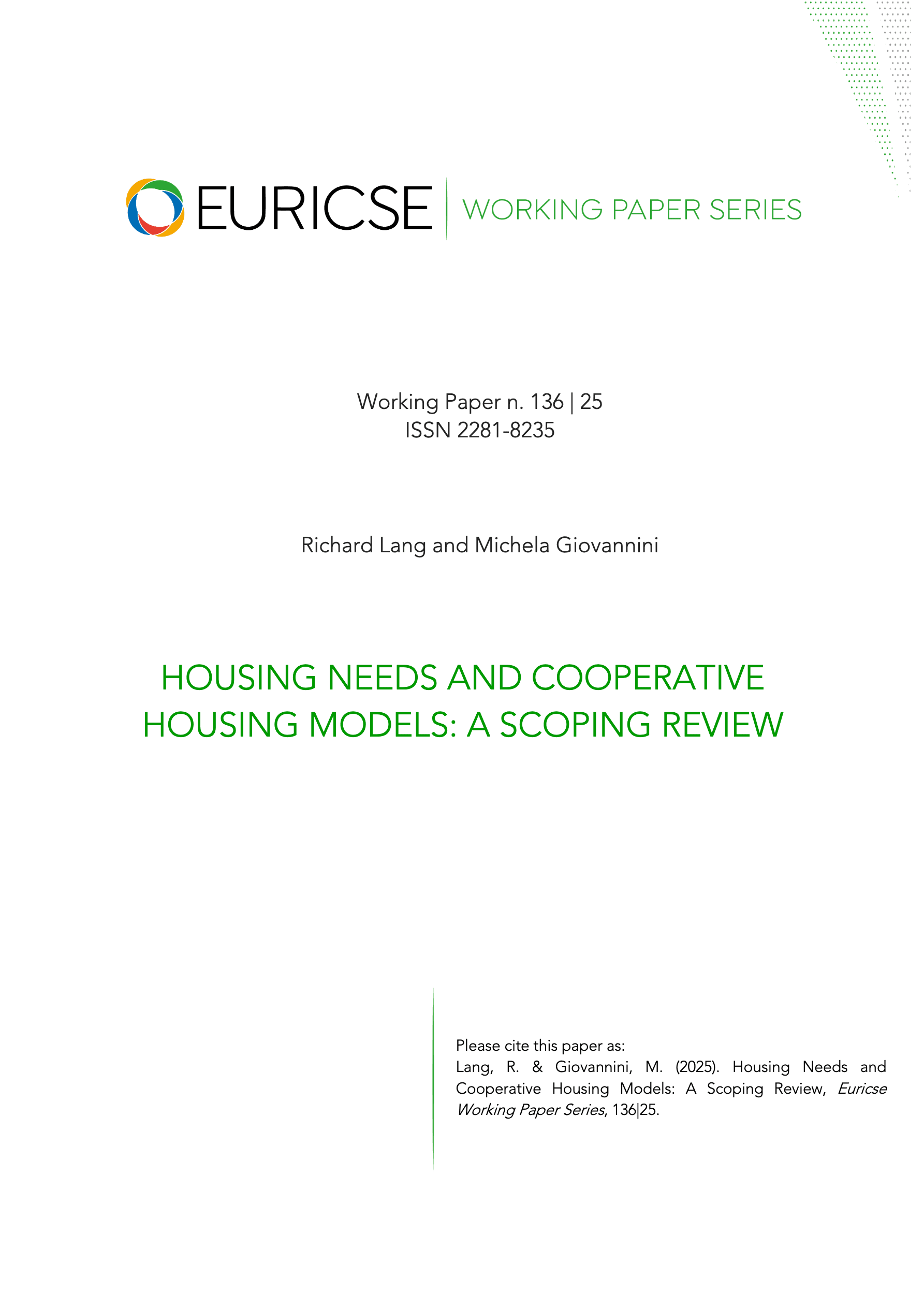Context and Purpose
The working paper titled "Housing Needs and Cooperative Housing Models: A Scoping Review" was authored by Richard Lang and Michela Giovannini and published by Euricse. This review addresses the growing affordability crisis in Europe and explores cooperative housing as an alternative to traditional housing models. It highlights various cooperative housing models across Europe and their potential to address the housing needs of diverse populations.
Affordability Crisis and Cooperative Housing
The authors point out that rising property prices, limited housing supply, and stagnant wages have made affordable housing increasingly unattainable, especially in urban areas. The review emphasizes how cooperative housing can offer viable solutions, particularly for vulnerable groups. Traditional ownership and rental cooperatives have successfully provided affordable housing in various European contexts, while newer models have emerged to meet residents' evolving preferences regarding community engagement and sustainability.
Research Methodology
A scoping review methodology was employed to systematically identify, categorize, and synthesize existing literature on cooperative housing models in Europe. The review spans the period from 1990 to 2024, allowing for a comprehensive understanding of historical and contemporary housing cooperatives. The literature search yielded 231 relevant publications, focusing on themes such as affordability mechanisms, social inclusion, and resident participation.
Traditional Cooperative Models
The paper categorizes cooperative housing into two main traditional models: ownership cooperatives and rental cooperatives. Ownership cooperatives allow members to purchase shares, granting them equity and the right to occupy housing units, while rental cooperatives focus on providing affordable rental housing, with members paying monthly rents to cover operational costs. These models prioritize collective ownership, democratic governance, and long-term affordability.
Innovative Cooperative Models
In recent years, innovative cooperative housing models have emerged in response to ongoing housing crises. Examples include self-organized housing initiatives, partnership models with nonprofit developers, and participatory projects that emphasize resident involvement. These models promote sustainability, community engagement, and social responsibility, addressing the limitations of conventional housing providers.
Successful Examples
The review presents several successful cooperative housing projects, such as La Borda in Barcelona, which showcases a self-managed housing cooperative, and Quattro Corti in Milan, a public-cooperative partnership that integrates cooperative actors into public housing management. These examples highlight innovative financing mechanisms, sustainable practices, and strong community involvement.
Challenges and Recommendations
Despite the potential benefits of cooperative housing, the review identifies challenges such as financial stability, inclusivity, and resident participation. The authors conclude with policy recommendations aimed at scaling cooperative housing while preserving its core values of social justice and democratic governance. They emphasize the importance of innovative financing, partnerships with municipalities, and non-speculative land use in sustaining cooperative housing models.
Conclusion
The paper illustrates the adaptability of cooperative housing principles to various social and economic contexts, offering alternatives to market-driven housing solutions. By fostering social cohesion, addressing affordability challenges, and promoting sustainability, cooperative housing can serve as a transformative force in urban and rural development across Europe.
